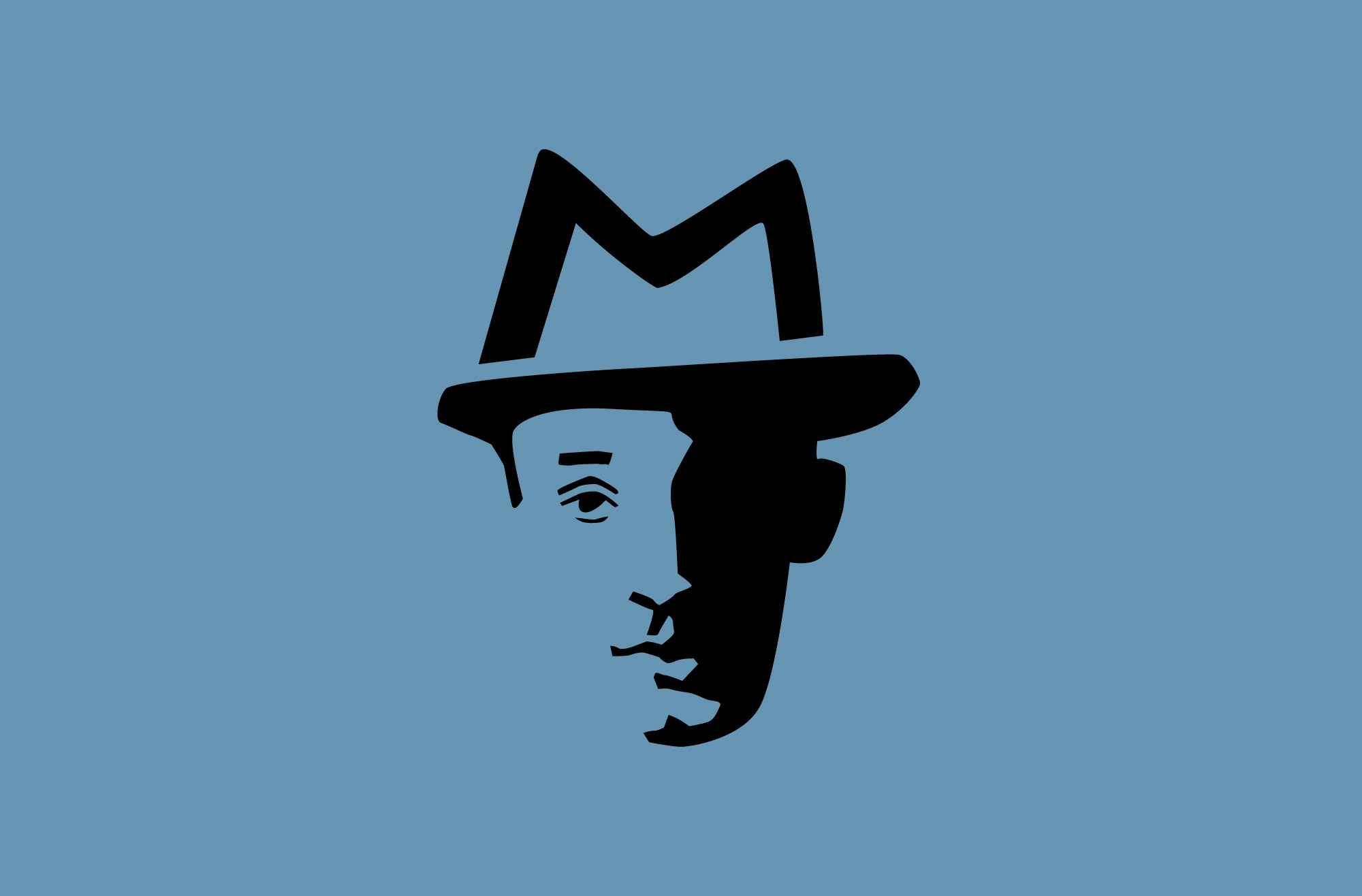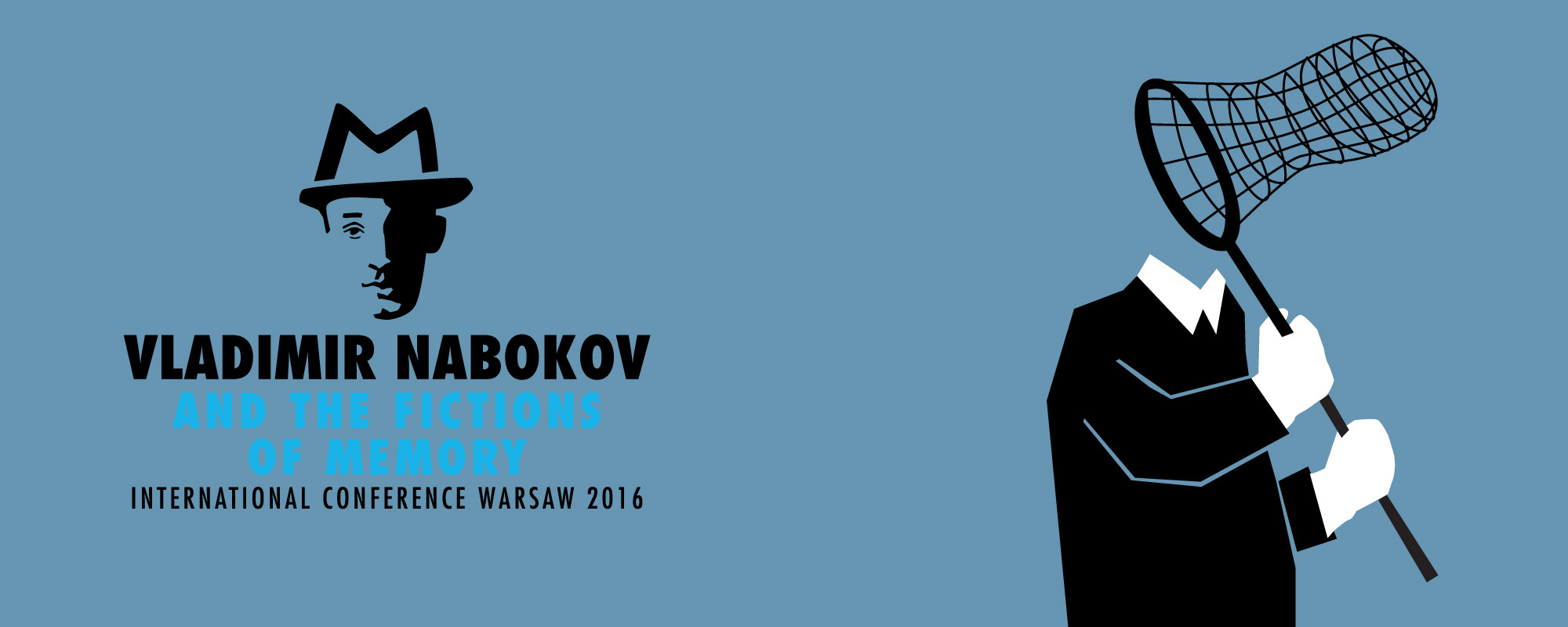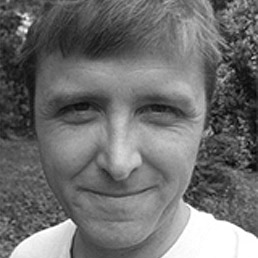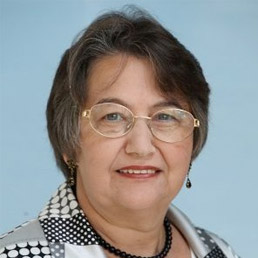Vladimir Nabokov and the fictions of memory

INTERNATIONAL CONFERENCE
Vladimir Nabokov
and the Fictions of Memory
The languages of the conference are English and Russian.
conference
September22-23 2016
Warsaw
About the Conference
Almost 40 years after Nabokov's death his texts continue to function as literary Fabergé eggs in which scholars keep finding hidden surprises and previously overlooked details. As Nabokov wrote in Conclusive Evidence, "the unravelling of a riddle is the purest and most basic act of the human mind." However, readers and critics are divided on the issue of whether Nabokov is a postmodern riddle-maker enjoying the game itself without enabling the player to reach the ultimate solution, or whether the riddles are solvable by a reader astute enough to follow all the sophisticated patterns and allusions which point to Nabokov's metaphysical convictions.
One of the greatest riddles of Nabokov's art is memory. From his very first poems and his first novel Mary to the unfinished manuscript of The Original of Laura, Nabokov's writings abound in characters haunted by their past. This preoccupation is not simply a feature of loss and nostalgia characteristic of emigrant experience in general, but an attempt to examine the mechanisms which control the functions of human consciousness. While Nabokov explores his own remembrances, transferring his experiences to the characters of his fictions, it is never entirely how much of what is being recalled is in fact a construct of the imagination.
Memory becomes an obsession for many of Nabokov's heroes, who may often be described as mnemonic deviants, their crimes resulting from a falsified perception of reality which they constantly filter through the lenses of the past. Conversely, there are characters ennobled by their devotion to every fleeting detail of their existence, whether past or present.
What is the function of memory in Nabokov's texts? Is Nabokov really interested in objectively recalling the past or would it be more apt to say that he artfully constructs remembrance in order to deal with trauma, loss and disappointment? To what extent is the past reshaped through literary models and intertextual props? Does the past control us, as in Freud's theories, detested and summarily dismissed by Nabokov, or is it possible to control the workings of memory and manipulate it in literary discourse?

Conference Program
Day One: 22 September 2016
8.00-8.30 – Registration
8.30-8.45 – Conference Opening, Room S302
8.45-10.15 – Keynote Lecture Weaving in Time: Nabokov’s Magic Carpet – Stephen Blackwell, Professor and Chair, The University of Tennessee, Knoxville,
USA, Room: S302
10.15-10.30 – Coffee Break
10.30-12.00 – Panel 1: Stage-managing Memory: The Author and his Creatures, Chair: Adam Lipszyc, Room: S302
- Memory’s Invisible Managers: The Case of Luzhin – Mikołaj Wiśniewski, SWPS University, Warsaw, Poland
- Supreme Indifference”: Some Fictions of Memory – Soelve I. Curdts, Heinrich-HeineUniversität Düsseldorf, Germany
- Memory (Re)imagined: Nabokov and Gombrowicz – Katherina B. Kokinova, Independent Scholar
12.00-12.15 – Coffee Break
12.15-13.45 – Panel 2 Memory Seeing: Autobiographical Fictions, Chair: Valery Timofeev, Room: S302
- Memory, Image and Compassion: Nabokov and Benjamin on Childhood – Adam Lipszyc, Institute of Philosophy and Sociology PAS, Warsaw, Poland
- Caravelles Encircled by White Birds. Speak, Memory: Memoirs or Fiction? – Gerard de Vries, Independent Scholar
- Time and Space between Autobiography and Photographs in Vladimir Nabokov’s Speak, Memory – Benjamin Taylor, University of Nottingham, UK
13.45-14.30 – Lunch Break
14.30-16.00 – Panel 3 Memory’s Flash: Short Stories, Chair: Leona Toker, Room: S302
- Orpheus Myth in „The Return of Chorb” and „The Visit to the Museum” as Nabokov’s Tragedy of Non-Return – Georgi Abdushelishvili, St. Petersburg State University, Russia
- Literary Memory in „A Forgotten Poet” – Péter Tamás, Eötvös Loránd University, Hungary
- „The Vane Sisters” by Vladimir Nabokov and the Hermeneutics of Memory and Death – Małgorzata Hołda, The Pontifical University of JP II, Cracow, Poland
16.00-16.15 – Coffee Break
16.15-17.45 – Panel 4 Nabokov’s Search for the Lost Time, Chair: Gerard de Vries, Room: S302
- In His Own Words – Vladimir Nabokov between Memory and Literature – Jagoda Mytych, Institute of Journalism, Media and Social Communication Jagiellonian University, Poland
- The Smell of Memory in Vladimir Nabokov's Mary – Dorota Mieszek, Institute of Polish Culture, University of Warsaw, Poland
- Memory as Fabulation in Nabokov’s „Ultima Thule” – Valery Timofeev, St. Petersburg State University, Russia
17.45-21.00 – Excursion to the Old Town
Day 2: 23 September 2016
9.00-10.30 – Keynote Lecture Nabokov’s Factography – Leona Toker, The Hebrew University of Jerusalem, Israel, Room: S302
10.30-10.45 – Coffee Break
10.45-12.15 – Panel 5 Memory Tricks, Memory Transparencies, Chair: Stephen Blackwell, Room: S302
- Memories Trick; Memories Mix: Transparent Things – Akiko Nakata, Nanzan University, Nagoya, Japan
- Transparent Things, Invisible Men – Carlo Comanducci, Independent Scholar
- Shuffling Pages of Nabokov’s „Fame” – Daniel Sirgeyev, St. Petersburg State University, Vladimir Nabokov Museum, Russia
12.15-12.30 – Coffee Break
12.30-13.30 – Panel 6 Obsessions of Memory: Lolita Chair: Irena Księżopolska, Room: S302
- Memory as Obsession: Is There a Suitable Wife for Nabokov’s Humbert Humbert? – Ljuba Tarvi, Helsinki University, Finland
- Time and Memory in Nabokov’s Lolita and Proust’s À la recherche du temps perdu – Dana Dragunoiu, Carleton University, Canada
13.30-14.30 – Lunch Break
14.30-15.30 – Special Lecture Memory Speaking in the Nabokov House – Tatiana Ponomareva, Vladimir Nabokov Museum, St. Petersburg, Russia, Room: S302
15.30-15.45 – Coffee Break
15.45-16.45 – Panel 7 Palimpsest of Memory, Chair: Mikołaj Wiśniewski, Room: S302
- Nabokov's Ontoentomology – Piotr Graczyk, Institute of Culture, Jagiellonian University, Poland
- Merging of the Objective, the Subjective and the Imaginary in Nabokov's Works – Vyatcheslav Bart, Tel Aviv University, Israel
16.45-17.00 – Coffee Break
17.00-18.00 – Panel 8 Mechanics of Memory, Chair: Tatiana Ponomareva, Room: S307
- Набоковская Мнемозина и концепт памяти в русской религиозной философии – Boris Averin, St. Petersburg State University, Maria Virolainen, Institute of Russian Literature (Pushkin House), RAS, Russia
- Воспоминание и бессознательная родовая сакрализация – Olga Dmitrienko, St. Petersburg State University of Technology and Design, Russia
18.00-18.15 – Coffee Break
18.15-19.15 – Panel 9E Memory’s Echoes, Memory’s Counterfeits, Chair: Dana Dragunoiu, Room: S302
- Biographer as an Imposter: Banville and Nabokov – Irena Księżopolska, Vistula University, Warsaw, Poland
- Time, History and Other Phantoms in The Real Life of Sebastian Knight – Andrzej Księżopolski, University of Warsaw, Poland
18.15-19.15 – Panel 9R Nabokov’s Waltz: Poems, Notes and Quotes, Chair: Daniel Sirgeyev, Room: S307
- Россия как зрительная память: попытка прочтения нескольких стихов Владимира Набокова – Mitsuori Sagae, Soka University, Tokyo, Japan
- Фюзеляж бабочки или вокруг да около набоколо – Evgeny Belodubrovski, St. Petersburg Union of Scholars
19.15-19.30 – Conference Closing, Room: S302
19.30 – Conference Dinner „Pasta”, Kamionkowska 48A
Call for papers
We invite presentations addressing the following, and related, issues in the context of Nabokov's works:
- fictitious biographies and autobiographical writings
- forgetfulness vs. memories of loss and trauma
- emigrant experience: nostalgia and the traps of memory
- memory as fabulation, memory as narrative
- speaking memory, memory and delusion
- memory and philosophy
- memory and psychoanalysis
- narration(s) of the mind
- visual memory (cinematography, photography)
- anticipatory memory, proleptic memory and "future recollection"
- return to/of the past in Nabokov's poetry
- bilingualism and remembrance
- comparative perspectives
- memory in political contexts: Revolution, exile, repatriation
- synesthetic metamorphoses:
- trivialities, souvenirs, memories
- symbolic correspondences
- realities beyond appearance - Nabokovian allusions, echoes and inspirations.
We invite proposals of individual 20 minute papers or 3-paper panels. Please submit proposals (up to 400 words) by 15/07/2016 to the organizers:
- Dr. Mikołaj Wiśniewski, SWPS University of Social Sciences and Humanities, Ten adres pocztowy jest chroniony przed spamowaniem. Aby go zobaczyć, konieczne jest włączenie w przeglądarce obsługi JavaScript.
- Dr. Irena Księżopolska, Independent Scholar, Ten adres pocztowy jest chroniony przed spamowaniem. Aby go zobaczyć, konieczne jest włączenie w przeglądarce obsługi JavaScript.
Acceptance confirmations will be sent before 20 July 2016
Registration deadline: 20 August 2016
Conference begins: 22 September 2016
Conference ends: 23 September 2016
Submission of papers for publication deadline: 31 January 2017
Selected papers will be considered for publication.
Keynote Speakers

Professor
Stephen Blackwell
Professor and Chair, The University of Tennessee, Knoxville, Russian Program
more info »

Professor
Leona Toker
Professor in the English Department of the Hebrew University of Jerusalem
more info »
Stephen Blackwell, Professor and Chair, The University of Tennessee, Knoxville, Russian Program. Stephen Blackwell teaches Russian literature and language. He is the author of Zina's Paradox: The Figured Reader in Nabokov's Gift, The Quill and the Scalpel: Nabokov's Art and the Worlds of Science and co-editor of the forthcoming Fine Lines: Vladimir Nabokov's Scientific Art.
Leona Toker, Professor in the English Department of the Hebrew University of Jerusalem. She is the author of Nabokov: The Mystery of Literary Structures (Cornell University Press, 1989), Eloquent Reticence: Withholding Information in Fictional Narrative (University Press of Kentucky, 1993), Return from the Archipelago: Narratives of Gulag Survivors (Indiana University Press, 2000), Towards the Ethics of Form in Fiction: Narratives of Cultural Remission (Ohio State University Press, 2010), and numerous articles on English, American, and Russian literature. She is the editor of Commitment in Reflection: Essays in Literature and Moral Philosophy (Garland, 1994) and co-editor of Rereading Texts / Rethinking Critical Presuppositions: Essays in Honour of H. M. Daleski (Peter Lang, 1996) as well as of Knowledge and Pain (Rodopi, 2012). She has founded and is editing Partial Answers: Journal of Literature and the History of Ideas, a semiannual academic periodical published by Johns Hopkins University Press.
Keynote lecturers
“Weaving in Time: Nabokov’s Magic Carpet”
Stephen Blackwell, The University of Tennessee, Knoxville
Nabokov’s art figures a constant tension between abundance and loss, between imprisonment and freedom. We see these parallel antinomies play out in Cincinnatus’s cell or the bars of Humbert’s real and metaphorical prisons, juxtaposed with escapes performed by Luzhin, Pnin, or Cincinnatus. In Nabokov’s worlds, unidirectional time is a prison, but memory appears to offer an escape. Not only people, but also inanimate things have memory, and it was this crucial insight that allowed Nabokov to successfully plot the arrival and diversification of certain blue butterflies in the New World over the course of millions of years. Cincinnatus preserves the memory of the ancients (Pushkin, Gogol) in his confinement, and these figures provide the foundation for his liberation at the novel’s end. In a different sense, remembering (re-collecting, reviving) old literature in Lolita is one of the ways for the reader to escape from Humbert’s solipsistic narrative. Many of Nabokov’s texts weave memory and time together – not just for the characters, but for the reader, too. His injunction to reread, to transform the linear into the planar, rests on the practice of memory and the labor of multiple artistic readings, in order to create the illusion of overcoming temporality. Nabokov’s novels remember each other – even, sometimes, like Fyodor in The Gift, remembering future novels (just as Boris Shchyogolev outlines a prototype for Lolita). His magic carpet, which is also his time machine (and which appears in many guises throughout his works), allows him and his characters to weave through past and future. Soaring, and folding deceptively, the escape it offers provides only a fleeting ecstasy, a “relief from the itch of being,” as Nabokov calls it in the forward to Glory. This relief, or “palliative,” Nabokov suggests, may be the only inkling humans can achieve of an existence beyond the prison of time.
“Nabokov’s Factography”
Leona Toker, The Hebrew University of Jerusalem
Nabokov’s fictional retrospective first-person narratives rely on the “perfect-memory” convention, which is, however, sometimes laid bare or even subverted. This convention makes no inroads in Nabokov’s factographic narratives, such as Speak, Memory and “Abram Gannibal.” This paper discusses the narrative techniques that replace the “perfect-memory” convention in the “childhood-adolescence-youth” part of Speak, Memory, and the way these techniques relate to Nabokov’s view of the workings of memory, in the context of some of his literary and philosophical precursors.
Special lecture
“Memory Speaking in the Nabokov House”
Tatiana Ponomareva, Director of the Vladimir Nabokov Museum in St. Petersburg
The talk will focus on the experience of studying Nabokov in the Nabokov House which, according to Nabokov, blended the “spiritual grace of a Russian household with the very best treasures of European culture.” Nabokov only spent the first eighteen years of his life in Petersburg but these were his formative years that continued to inspire him both as a Russian and as an English-language writer well into the mature years of his writing career. After many years in the Nabokov Museum, my studies of the Nabokov family and their circle still bring new discoveries. The most rewarding discoveries are the ones that give a new dimension to a familiar Nabokovian image, as well as those that elucidate some of the themes or single passages in his memoir.
Conference fee:
100 EUR / 120 USD or equivalent in PLN
Organising Committee
- Dr Mikołaj Wiśniewski, SWPS University of Social Sciences and Humanities, Warsaw, Poland
- Dr Irena Księżopolska, Vistula University, Warsaw



